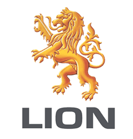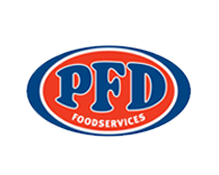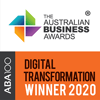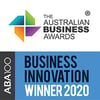Pattern Recognition Algorithms
Pattern recognition algorithms:Pattern recognition algorithms are used to identify patterns in data. These algorithms can be used to find trends, make predictions, and make decisions. There are many different types of pattern recognition algorithms, including decision trees, support vector machines, and neural networks.
Pattern recognition algorithms are a set of techniques used to identify patterns in data. They involve the identification and classification of patterns, often with the help of machine learning models. These algorithms can be used for various applications including image processing, facial recognition and natural language processing. This article will discuss the fundamentals of pattern recognition algorithms as well as their uses in different industries.
The concept of pattern recognition has been around for centuries, but only recently have we seen its widespread use due to advancements in technology and computing power. Pattern recognition algorithms allow us to find information hidden within large datasets by automatically recognizing certain patterns or features from those sets. By doing so, they enable us to make decisions more quickly and accurately than ever before.
In this article, readers will learn about the fundamentals of pattern recognition algorithms such as supervised versus unsupervised approaches, feature extraction methods, decision boundaries and classifiers. Furthermore, they will gain insight into how these algorithms are being applied across various industries such as healthcare, security and finance. Finally, readers will be able to better understand why these technologies are becoming increasingly popular and important in today's world.
What Is Meant By Pattern Recognition?
Pattern recognition is an area of machine learning that involves understanding signals and extracting patterns from them. It uses probability distributions, signal processing techniques, image processing algorithms, and statistical pattern recognition methods to automatically recognize objects or features in a given input. The objective function in this technique is often used to find the best track candidates for a particular multiplicity event. The process of recognizing a pattern using automatic recognition involves feature extraction - where specific characteristics are extracted from the data; classification - which classifies each individual element into different categories; clustering - where elements with the same traits are grouped together; and finally decision-making - where decisions about certain events can be taken based on the identified patterns. In addition, various other processes such as filtering, segmentation and normalization may also be applied depending upon the type of problem being solved by the pattern recognition algorithm. Each step in this process has its own set of parameters and criteria which must be tuned accordingly so that optimal results can be achieved.
What Is Pattern Recognition And Why Is It Important?
Pattern recognition is an important branch of artificial intelligence that focuses on the identification and classification of patterns in data. It is based on algorithms that are designed to recognize patterns from a given set of features, usually by using cost functions or other optimization techniques. Pattern recognition can be used for various applications such as individual recognition, image recognition, semg pattern recognition systems, automated feature extraction and more.
The main goal of pattern recognition is to identify objects or individuals with high accuracy based on their original features. This type of technology has become increasingly popular due to its ability to accurately detect subtle changes in patterns over time. Additionally, it helps reduce errors caused by human biases which would otherwise be difficult to avoid without the aid of machine learning algorithms.
TIP: When developing a pattern recognition system, it’s important to consider the types of data being processed and how they will affect your results. Different approaches may be necessary depending on the complexity of each application and dataset. Additionally, choosing reliable techniques like supervised learning methods can help ensure you get accurate results while minimizing risks associated with false positives or incorrect classifications.
What Kind Of Skill Is Pattern Recognition?
Pattern recognition is a skill that involves identifying patterns in data and making predictions from them. It has become increasingly important due to the rise of quantum computers which have made it possible to analyse large datasets more efficiently than ever before. Pattern recognition algorithms are used for particle pattern recognition, where the shape of feature distributions can be tracked across different parameters such as particles per event, performance metrics, impact parameters and feature extraction.
The potential of quantum computing in this field is immense; with its ability to rapidly process vast amounts of information, complex tasks such as tracking multiple particles at once can be achieved much faster than before. This enables more accurate and detailed analysis of data sets, allowing researchers to gain insights into phenomena previously thought impossible. As a result, pattern recognition has become an invaluable tool in many research fields and will continue to play an important role in advancing science and technology.
What Are The 3 Components Of The Pattern Recognition?
Pattern recognition is a skill that has been developed to help machines understand the world around them. It involves extracting meaningful information from data and recognizing patterns in inputted information so that it can be used for various applications. The three components of pattern recognition are Neural Networks, Pattern Recognition System (PRS) and Machine Learning.
Neural networks allow computers to process complex tasks like object detection or image classification by providing an artificial intelligence system with multiple layers of neurons connected together. By giving the computer access to vast training datasets, it is able to create its own feature vector based on the input patterns which will enable it to recognize similar patterns in future inputs. PRSs rely heavily on deep learning algorithms such as convolutional neural networks (CNN) which allows them to analyze images more efficiently by detecting features within each frame without being explicitly programmed to do so. Lastly, machine learning enables systems to learn through experience; after receiving detailed feedback regarding their performance they improve themselves over time until they reach a satisfactory level of accuracy. This component works in conjunction with other techniques such as pattern matching and computer vision allowing them to accurately identify objects and draw connections between different types of data points.
Conclusion
Pattern recognition is a skill that has applications in many fields, such as engineering and computer science. It can be used to identify patterns in data sets or images, which helps with tasks like object detection and facial recognition. Pattern recognition algorithms are frequently used by machines to perform the task of recognizing patterns accurately and efficiently.
The three components of pattern recognition are feature extraction, classification, and clustering. Feature extraction involves extracting important features from raw data or an image. Classification assigns labels to these extracted features depending on their properties. Clustering groups similar objects together based on their similarities. The combination of all three steps enables machines to recognize complex patterns quickly and accurately.
In conclusion, pattern recognition is an important skill for solving various problems in diverse fields such as engineering, computer vision, machine learning, etc. Its importance lies in its ability to detect useful information from large amounts of data or images quickly and accurately using the three components: feature extraction, classification, and clustering. This makes it possible for machines to utilize the power of pattern recognition algorithms for more effective decision-making processes.
PREVIOUS NARROW AI GLOSSARY TERM
NEXT NARROW AI GLOSSARY TERM
Pattern Recognition Algorithms Definition
Exact match keyword: Pattern Recognition Algorithms N-Gram Classification: Machine Learning, Artificial Intelligence, Deep Learning Substring Matches: Recognition, Algorithms Long-tail variations: "Machine Learning Algorithms", "Deep Learning Algorithms" Category: Technology, Software Search Intent: Research, Solutions Keyword Associations: Neural Networks, supervised learning, unsupervised learning Semantic Relevance: Machine Learning, Artificial Intelligence, Deep Learning Parent Category: Technology Subcategories: Neural Networks, Supervised Learning and Unsupervised Learning Synonyms: Neural Networks, Supervised Learning and Unsupervised Learning Similar Searches: Machine Learnings Algoriths and Deep Learning Algoriths Geographic Relevance Global Audience Demographics Business Professionals students researchers Brand Mentions IBM Google Microsoft Industry-specific data Accuracy Patterns Computational Complexity Commonly used modifiers "Machine learning", "Artificial Intelligence", "Deep learning" Topically relevant entities Machine Learnings Algoriths and Deep Learning Algorthims Neural Networks Supervised and Unsupervised learning Accuracy Patterns Computational Complexity."Larry will be our digital expert that will enable our sales team and add that technological advantage that our competitors don't have."
Kerry Smith
CEO, PFD Foods
$1.6 billion in revenue 
"Lion is one of Australasia’s largest food and beverage companies, supplying various alcohol products to wholesalers and retailers, and running multiple and frequent trade promotions throughout the year. The creation of promotional plans is a complicated task that requires considerable expertise and effort, and is an area where improved decision-making has the potential to positively impact the sales growth of various Lion products and product categories. Given Complexica’s world-class prediction and optimisation capabilities, award-winning software applications, and significant customer base in the food and alcohol industry, we have selected Complexica as our vendor of choice for trade promotion optimisation."
Mark Powell
National Sales Director, Lion
"At Liquor Barons we have an entrepreneurial mindset and are proud of being proactive rather than reactive in our approach to delivering the best possible customer service, which includes our premier liquor loyalty program and consumer-driven marketing. Given Complexica’s expertise in the Liquor industry, and significant customer base on both the retail and supplier side, we chose Complexica's Promotional Campaign Manager for digitalizing our spreadsheet-based approach for promotion planning, range management, and supplier portal access, which in turn will lift the sophistication of our key marketing processes."
Richard Verney
Marketing Manager
Liquor Barons

"Dulux is a leading marketer and manufacturer of some of Australia’s most recognised paint brands. The Dulux Retail sales team manage a diverse portfolio of products and the execution of our sales and marketing activity within both large, medium and small format home improvement retail stores. We consistently challenge ourselves to innovate and grow and to create greater value for our customers and the end consumer. Given the rise and application of Artificial Intelligence in recent times, we have partnered with Complexica to help us identify the right insight at the right time to improve our focus, decision making, execution, and value creation."
Jay Bedford
National Retail Sales Manager
Dulux

"Following a successful proof-of-concept earlier this year, we have selected Complexica as our vendor of choice for standardizing and optimising our promotional planning activities. Complexica’s Promotional Campaign Manager will provide us with a cloud-based platform for automating and optimising promotional planning for more than 2,700 stores, leading to improved decision-making, promotional effectiveness, and financial outcomes for our retail stores."
Rod Pritchard
Interim CEO, Metcash - Australian Liquor Marketers
$3.4 billion in revenue 
"After evaluating a number of software applications and vendors available on the market, we have decided to partner with Complexica for sales force optimisation and automation. We have found Complexica’s applications to be best suited for our extensive SKU range and large set of customers, being capable of generating recommendations and insights without burdening our sales staff with endless data analysis and interpretation.
Aemel Nordin
Managing Director, Polyaire
"DuluxGroup is pleased to expand its relationship with Complexica, a valued strategic partner and supplier to our business. Complexica’s software will enable DuluxGroup to reduce the amount of time required to generate usable insights, increase our campaign automation capability, personalise our communications based on core metrics, and close the loop on sales results to optimise ongoing digital marketing activity."
James Jones
Group Head of CRM, DuluxGroup
"Instead of hiring hundreds of data scientists to churn through endless sets of data to provide PFD with customer-specific insights and personalised recommendations, Larry, the Digital Analyst® will serve up the answers we need, when we need them, on a fully automated basis without the time and manual processes typically associated with complex analytical tasks.”
Richard Cohen
CIO, PFD Foods
$1.6 billion in revenue 
"As a global innovator in the wine industry, Pernod Ricard Winemakers is always seeking ways to gain efficiencies and best practices across our operational sites. Given the rise of Artificial Intelligence and big data analytics in recent times, we have engaged Complexica to explore how we can achieve a best-in-class wine supply chain using their cloud-based software applications. The engagement is focused on Australia & New Zealand, with a view to expand globally."
Brett McKinnon
Global Operations Director, Pernod Ricard Winemakers
"70% - 80% of what we do is about promotional activity, promotional pricing -- essentially what we take to the marketplace. This is one of the most comprehensive, most complex, one of the most difficult aspect of our business to get right. With Complexica, we will be best in class - there will not be anybody in the market that can perform this task more effectively or more efficiently than we can."
Doug Misener
CEO, Liquor Marketing Group
1,400+ retail stores 
"The key thing that makes such a difference in working with Complexica is their focus on delivering the business benefits and outcomes of the project."
Doug Misener
CEO, Liquor Marketing Group
1,400+ retail stores 
"Australia needs smart technology and people, and it has been a great experience for me to observe Complexica co-founders Zbigniew and Matt Michalewicz assemble great teams of people using their mathematical, logic, programming, and business skills to create world-beating products. They are leaders in taking our bright graduates and forging them into the businesses of the future."
Lewis Owens
Chairman of the Board, SA Water 
"Having known the team behind Complexica for some years ago now, I am struck by their ability to make the complex simple - to use data and all its possibilities for useful purpose. They bring real intelligence to AI and have an commercial approach to its application."
Andrew McEvoy
Managing Director, Fairfax Media - Digital 
"I have worked with the team at Complexica for a number of years and have found them professional, innovative and have appreciated their partnership approach to delivering solutions to complex problems."
Kelvin McGrath
CIO, Asciano 
“Working with Complexica to deliver Project Automate has been a true partnership from the initial stages of analysis of LMG’s existing processes and data handling, through scoping and development phase and onto delivery and process change adoption. The Complexica team have delivered considerable value at each stage and will continue to be a valued partner to LMG."
Gavin Saunders
CFO, Liquor Marketing Group 
“Complexica’s Order Management System and Larry, the Digital Analyst will provide more than 300 Bunzl account managers with real-time analytics and insights, to empower decision making and enhanced support. This will create more time for our teams to enable them to see more customers each day and provide the Bunzl personalised experience.”
Kim Hetherington
CEO, Bunzl Australasia 
"The team behind Complexica develops software products that are at the cutting edge of science and technology, always focused on the opportunities to deliver a decisive competitive edge to business. It has always been a great experience collaborating with Matthew, Zbigniew and Co."
Mike Lomman
GM Demand Chain, Roy Hill Iron Ore 
"The innovations that the Complexica team are capable of continue to amaze me. They look at problems from the client side and use a unique approach to collaborating with and deeply understanding their customers challenges. This uniquely differentiates what they bring to market and how they deliver value to customers."
John Ansley
CIO, Toll Group 
"Rather than building out an internal analytics team to investigate and analyse countless data sets, we have partnered with Complexica to provide our sales reps with the answers they need, when they need them, on a fully automated basis. We are excited about the benefits that Larry, the Digital Analyst will deliver to our business.”
Peter Caughey
CEO, Coventry Group 
“Complexica’s Order Management System and Larry, the Digital Analyst will provide more than 300 Bunzl account managers with real-time analytics and insights, to empower decision making and enhanced support. This will create more time for our teams to enable them to see more customers each day and provide the Bunzl personalised experience.”
Kim Hetherington
CEO, Bunzl Australasia 
"After an evaluation process and successful proof-of-concept in 2016, we have chosen to partner with Complexica to upgrade the technological capability of our in-field sales force. The next-generation Customer Opportunity Profiler provided by Complexica will serve as a key tool for sales staff to optimise their daily activities, personalise conversations and interactions with customers, and analyse data to generate actionable insights."
Stephen Mooney
Group Sales Capability Manager, DuluxGroup
$1.7 billion in revenue
"After evaluating a number of software systems available in the marketplace, we have ultimately selected Complexica as our vendor of choice for sales force automation and CRM. Given the large SKU range we carry and very long tail of customers we serve, Complexica’s applications are best suited to deal with this inherent complexity without burdening our staff with endless data entry."
Nick Carr
CEO, Haircaire Australia
Australia's largest distributor of haircare products
“Asahi Beverages is Australia’s largest brewer, supplying a leading portfolio to wholesalers and retailers, including some of Australia’s most iconic brands. Last year Asahi Beverages acquired Carlton & United Breweries, which is its Australian alcohol business division. To harness the strength of our expanded portfolio, we partner with our customers to run multiple and frequent trade promotions throughout the year, delivering long-term growth for both our business and theirs. Given the inherent complexity in optimising promotional plans and our continued focus on revenue and growth management, we have selected Complexica as our vendor of choice after a successful Proof-of-Concept of its world-class optimisation capabilities.”
Kellie Barnes
Group Chief Information Officer
Asahi Beverages
"Dulux is a leading marketer and manufacturer of some of Australia’s most recognised paint brands. The Dulux Retail sales team manage a diverse portfolio of products and the execution of our sales and marketing activity within both large, medium and small format home improvement retail stores. We consistently challenge ourselves to innovate and grow and to create greater value for our customers and the end consumer. Given the rise and application of Artificial Intelligence in recent times, we have partnered with Complexica to help us identify the right insight at the right time to improve our focus, decision making, execution, and value creation."
Jay Bedford
National Retail Sales Manager, DuluxGroup
"At Liquor Barons we have an entrepreneurial mindset and are proud of being proactive rather than reactive in our approach to delivering the best possible customer service, which includes our premier liquor loyalty program and consumer-driven marketing. Given Complexica’s expertise in the Liquor industry, and significant customer base on both the retail and supplier side, we chose Complexica's Promotional Campaign Manager for digitalizing our spreadsheet-based approach for promotion planning, range management, and supplier portal access, which in turn will lift the sophistication of our key marketing processes."
Richard Verney
Marketing Manager, Liquor Barons


































